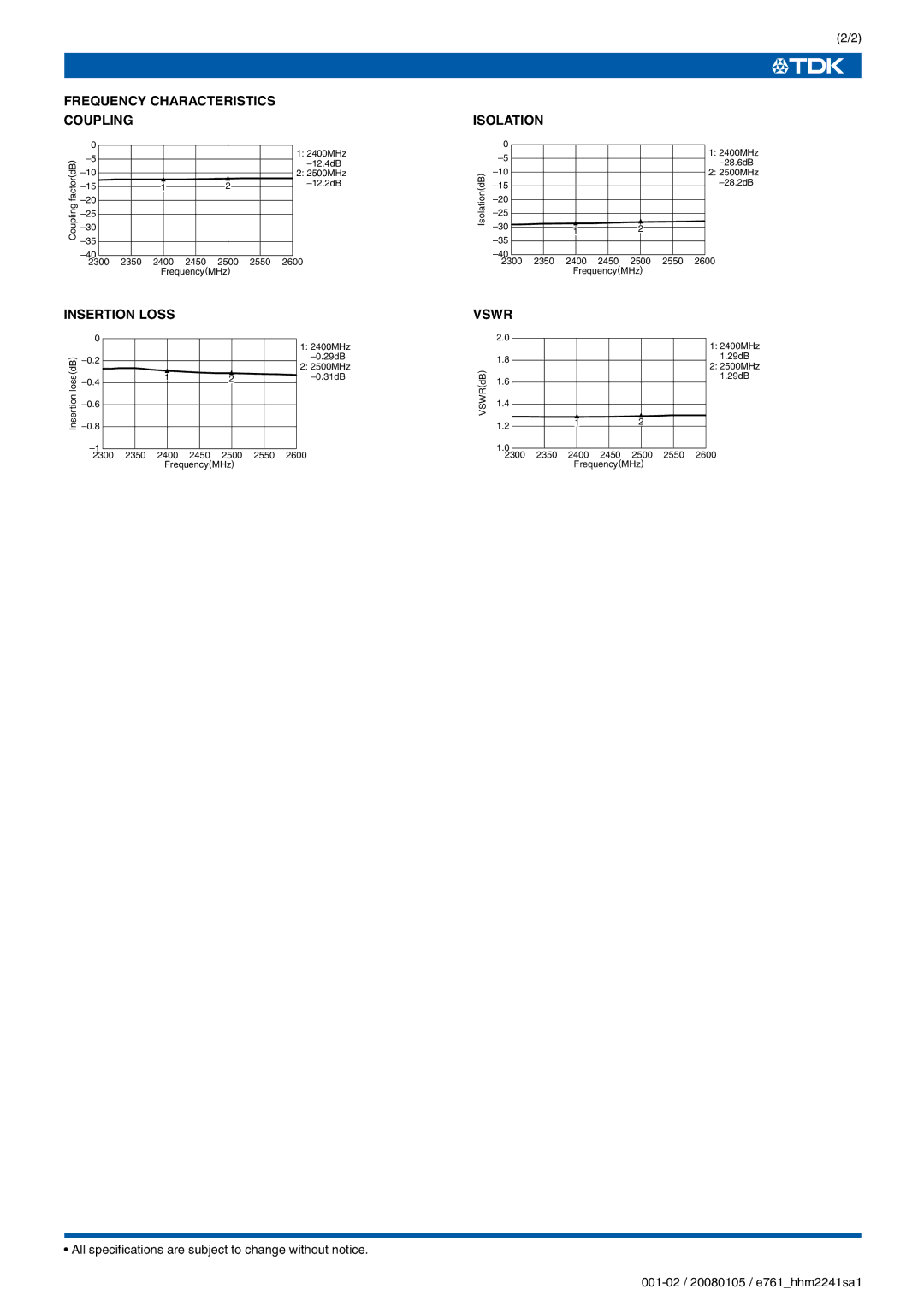HHM Series HHM2241SA1 specifications
The TDK HHM Series HHM2241SA1 represents a significant advancement in electronic components, specially designed for applications that require high reliability and efficiency. This product is a part of TDK's commitment to providing innovative solutions that meet the demanding needs of modern technology.At the core of HHM2241SA1 is its robust construction, allowing it to handle elevated temperatures and conditions without compromising performance. This component is designed to operate effectively within a broad temperature range, ensuring reliable operation in various environments. The device exhibits excellent stability and minimal drift over time, which is critical for applications where precision is paramount.
One of the standout features of the HHM2241SA1 is its high-frequency capability. This characteristic makes it suitable for applications in telecommunications and data processing, where signal integrity and speed are critical. Coupled with its low noise characteristics, it ensures minimal interference in signal transmission, enhancing overall system performance.
The technology utilized in the HHM2241SA1 leverages a sophisticated combination of materials and design principles, resulting in a component that offers both high quality and efficiency. Its advanced manufacturing techniques ensure consistent performance metrics and high reliability. This places the HHM2241SA1 at the forefront of modern electronic components, making it an ideal choice for engineers looking to push the boundaries of technology.
Another important aspect of the HHM2241SA1 is its versatility. It can be utilized in a range of applications from industrial automation to consumer electronics. As such, it is suitable for various sectors including automotive, medical devices, and renewable energy systems, making it a universal solution for engineers across multiple domains.
The TDK HHM Series HHM2241SA1 not only meets but exceeds industry standards, making it an ideal component for designers seeking top-tier performance. Its combination of high temperature resistance, frequency capabilities, and low noise levels solidifies its position as a critical part of any high-end electronic configuration. As technology continues to evolve, components like the HHM2241SA1 will be integral in shaping the future of electronic innovation.

